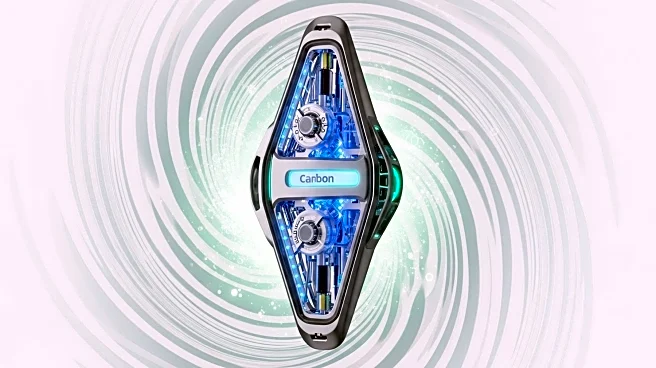What's Happening?
Researchers in Denmark have developed a method to transform PET plastic waste into a material that captures carbon dioxide. The study, published in Science Advances, describes how decomposed PET plastic can be converted into a CO2 sorbent called BAETA. This material is effective at absorbing CO2 and offers a potential solution to both plastic pollution and climate change. The process involves upcycling plastic waste through aminolysis, creating a heat-resistant material that can be used for carbon capture.
Why It's Important?
This innovation addresses two major environmental challenges: plastic pollution and greenhouse gas emissions. By repurposing plastic waste into a carbon capture material, the research offers a sustainable approach to reducing atmospheric CO2 levels. The development of BAETA could lead to scalable carbon capture systems, providing economic incentives to clean up oceanic plastic waste. This dual-purpose solution has the potential to significantly impact environmental conservation efforts and contribute to climate change mitigation.
Beyond the Headlines
The use of decomposed PET plastic for carbon capture highlights the potential for innovative recycling methods to address environmental issues. This approach not only reduces waste but also creates new opportunities for sustainable development. The research may inspire further exploration of waste-to-resource technologies, promoting circular economy principles and reducing reliance on fossil fuels.









